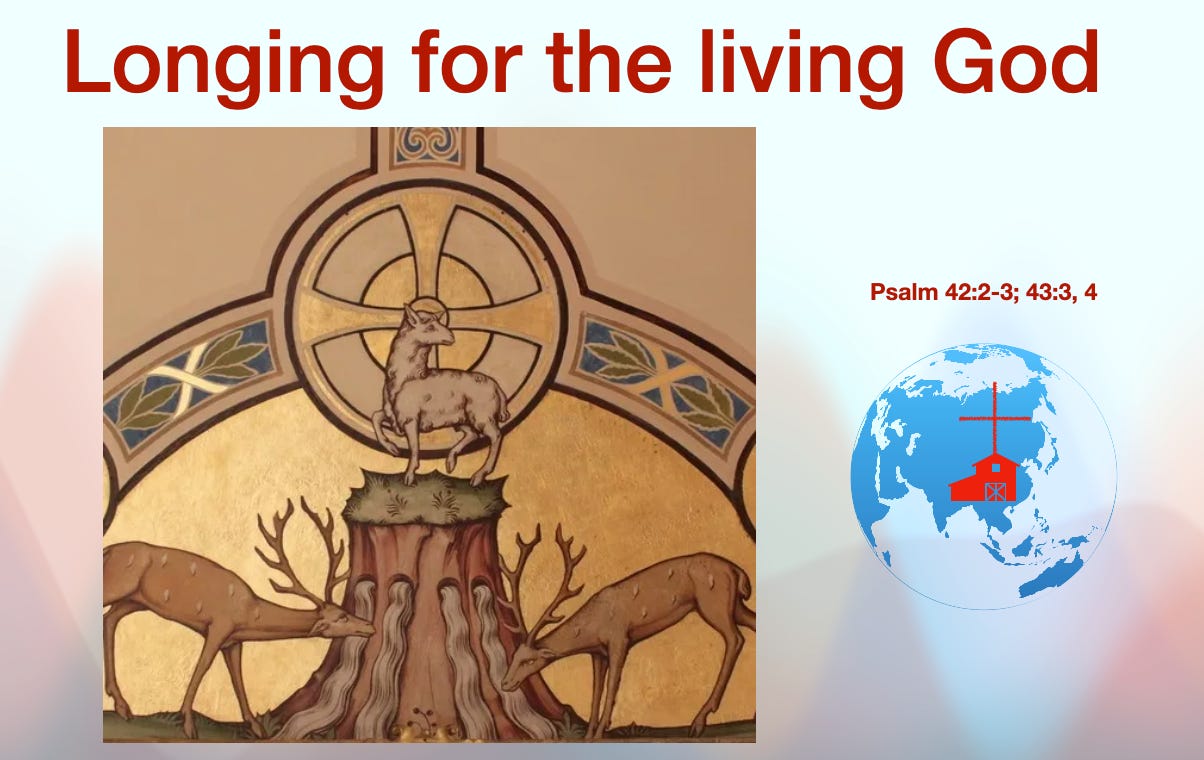May 1, 2023 - Monday, Fourth Week of Easter, Memorial of St. Joseph the Worker
Our liturgical psalm today comes from two psalms: Psalms 42 and 43. The first two stanzas are taken from Psalm 42 and they speak about a deep longing for “God, the living God”. It is worth noticing this additional description of God as “the living God”. In ancient times, people worshipped many gods represented by human or animal images, made of wood or stone and adorned with silver or gold. How did they compare to the God of the Bible?
In the book of Baruch, we find a letter from the prophet Jeremiah to the Jews exiled to Babylon regarding “gods of silver and gold and wood, carried shoulder high, to cast fear upon the nations” (Baruch 6:3). The prophet tells the people not to fear them or worship them because “they are not gods” (Baruch 6:14). In the book of Jeremiah, he compares those gods made of a tree cut from the forest to “scarecrows in a cucumber field” (Jer 10:5). They cannot do either evil or good.
On the other hand, the living God is the Creator of the universe and the liberator of the people. He alone should be feared and worshipped (see Baruch 6:5). He guides the history of humanity, accompanies God’s people in their journey through life, he spoke to God’s people through his prophets and in those last days, as the letter to the Hebrews puts it, has spoken to us through his Son, Jesus Christ who is the image of the invisible God (see Heb 1:1-2; Col 1:15).
It is for this living God who surpasses our comprehension that the psalmist longs so much. It is for an encounter with the risen Christ that the Church and every Christian should long for. The psalmist asks: “When shall I go and behold the face of God?” (Ps 42:3). He must be thinking of going on a pilgrimage to the temple in Jerusalem as he did before (see Ps 42:5). We can long to behold the face of God in the Church during the Eucharistic celebration and the adoration of the Blessed Sacrament. But the question points towards heaven, towards heavenly Jerusalem where we shall see God face to face (see 1 John 3:2).
In the encounter with the Samaritan woman, Jesus offered her the living water that will forever satisfy her thirst. The woman responded: “Lord, give me this water, so that I will not be thirsty or have to come here to draw water.” (John 4:15). We are all thirsty for the living God but we search for Him in wrong places or try to substitute him with gods and idols that are useless. The living water that Jesus speaks about is the gift of the Holy Spirit which means God Himself. We have been created in the image and likeness of God and nothing except a deep relationship with God can satisfy the longings of our hearts!
Saint Joseph, Guardian of our Redeemer and Model of workers, pray for us that we shall always thirst for the living God and deepen our relationship with Jesus Christ.




